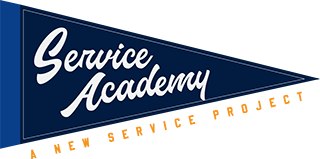A new vocabulary to describe the future you.

Seventeen-year-old Jordan leaned back in his chair. He began by describing a neighborhood as if he were picturing the actual one: the apartment he shared with his roommates, the local restaurants and coffee shops, the weekends out, and sunny vacations with his future friends. He will work in finance, he told us with finality, like his dad, and work his way up through the ranks. That’s the future Jordan describes for himself, told in the common vocabulary of lifestyle, career, and achievement.
Jordan is a high school junior and a friend of ours. He is thoughtful, engaging, and self-aware. He’s not afraid to reconsider his opinions or engage in thoughtful discussions.
We laid out thirty index cards in front of him. Each card had an attribute including “Empowering Others,” “Storytelling,” “Deciding/Accountability,” and “Persisting.” We asked him to organize them into two piles: “strengths” and “aspirations.” We asked him to describe himself and his future using terms he selected from the cards.
He leaned forward and carefully read the definition on the back of each card, pausing momentarily to occasionally reconsider one:
Empowering Others – I fight alongside anyone who wants help realizing their full, true expression of self. I motivate people to take bold, considered action, to think and act independently. I help people learn to trust their intuition and forge their unique life path with confidence. I encourage them to find the people that love them for who they are and to love themselves.
Improving Self – I practice small repeatable habits of learning and improvement. I am passionate about the practice of learning itself. I work hard to get better each day. I am aware of my strengths and weaknesses. I am eager to try new things, especially activities that I am not initially good at. I actively seek advice and guidance from mentors and coaches.
He smiled to himself and put that last card in the “aspirations” pile. After a short discussion about the definition of “Iterating/Prototyping,” he decided to create a third pile: “needs improvement.” He included:
Persisting – When I set my mind to something, I won’t stop until it’s complete. I will overcome setbacks, failures, miscues, and false starts. I stay stubbornly true to my intention. I am resourceful, tough, and adaptable. I know that the important things in life don’t come quickly or easily. I see challenges as motivation, and I learn from my mistakes.
As he finished, we asked him to reconcile the two futures he’d described.
He thoughtfully described the stacks of cards as the tools he will use to reach his desired neighborhood, apartment, and career — his personal achievements.
He can get better at “Improving Self” right now. He can create opportunities at school, sports, a summer job, and through service activities that will help further develop those important parts of himself, like sharpening the tools he will use in his journey towards life achievement.
Express through the Language of Purpose
The thirty attribute cards are a new vocabulary that allows Jordan to explore and express his future in the terms of purpose.
Purpose noun
pur·pose
the reason for which something is done or created or for which something exists.
He concluded that he should focus on developing these key aspects of himself that will allow him to “be the best version of himself” as he applies those strengths towards the achievements he envisions for himself. With a few new terms, Jordan describes his future in a fundamentally different narrative — one using terms of personal self-discovery.
With this new vocabulary, he can share his goal of further developing his skills at “Persisting” and “Improving Self” with his parents, teachers, and coaches. Additionally, he can practice these attributes in the classroom, on the field, and with his friends, seeking developmental experiences and feedback on his progress.
This new language gives him new awareness, agency, and direction, a clear path forward towards his achievement goals.
Goals are important. We like to think of ourselves as goal-oriented people, and there is value in achievement-based goals. But what if we only have achievement-based goals like top grades, scores or colleges? Where we only measure our marketable skills, better-paying careers, a beautiful house, and ski trips on school breaks?
Lifestyle goals often feel more like a video game, accumulating badges and scores, constantly measuring our winnings relative to others. Even community service has traditionally been distilled down to hours. Achievement is about “more,” using a narrow list of externally observable characteristics, which is a much different set of goals and actions than self-development.
What if we don’t have purpose-driven goals because we don’t think about them or we simply don’t have the language?
Purpose-Driven Goals & Framework
A family friend who is a life coach provided us with a list of work-focused attributes which we edited into these thirty terms, then created the definitions. These help us to consider a more purpose-driven framework for exploring and expressing who we are today and who we want to be. We’ve included them in the Service Academy Resource Lab so they can help others reflect on purpose-driven goals, too.
Try it: the thirty terms and definitions here. Put them on sticky notes or print them and then organize them into three piles: “strengths,” “aspirations,” and “needs improvement.” Let us know if they helped you reflect more on purpose-driven goals and any new thinking about how you envision your future. Send us feedback if you like them or not, and let us know if we missed anything or if you have any idea of how we can improve!
– Ryan & Thomas Growney SG’24
